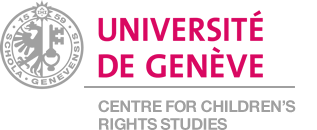Mainstreaming children’s rights in migration litigation-Vandenhole, Wouter; Ryngaert, Julie
Chapter 3. Mainstreaming children’s rights in migration litigation: Muskhadzhiyeva and others v. Belgium, 68-92.
The case of Muskhadzhiyeva and others v. Belgium concerns the detention of five Russian citizens of Chechnyan origin, Ms Aina Muskhadzhiyeva and her four children, Alik, Liana, Khadizha and Louisa, at the time of the events respectively seven years, five years, three and a half years and seven months old. They applied for asylum in Belgium on 12 October 2006. After it had been established that they had entered the Schengen area through Poland, and that the Polish authorities had declared to be willing to take care of them, they were ordered to leave Belgian territory, and were detained for more than a month in Centre 127bis with a view to their deportation to Poland. They were put on a plane to Poland on 24 January 2007. The European Court of Human Rights (hereinafter the Court or the ECHR) held that a violation had taken place of Articles 3 and 5(1)(f) of the European Convention on Human Rights (hereinafter ‘the Convention’) concerning the children, but not concerning the mother. The violations arose from the living conditions in detention and the absence of reasonable necessity for their detention. The Court rejected the claim of a violation of Article 8 as manifestly ill-founded.
With regard to the children, we do not disagree as such with the findings of the Court on Articles 3 and 5. Our concerns lie rather with the lack of elaboration of arguments and justification for these findings. The Court seems to have over-relied on the Tabitha case and on the question whether the current case was relevantly distinctive, at the expense of an analysis of this case in its own right. While this may be an understandable approach in a politically sensitive case for a Court that is suffering from an excessive workload and that is under increasing, often politically inspired criticism, it does not necessarily do justice to the complainants, nor to the cause of the group (in our case, children) they belong to. We do disagree with the findings of the Court that a violation neither of Article 3 nor of Article 5 has taken place with regard to the mother. That disagreement is at least partly related to the fact that the mother was accompanied by (young) children. In addition, we argue that Article 8 should have been held applicable, and that a violation of the right to respect of family life should have been found.
